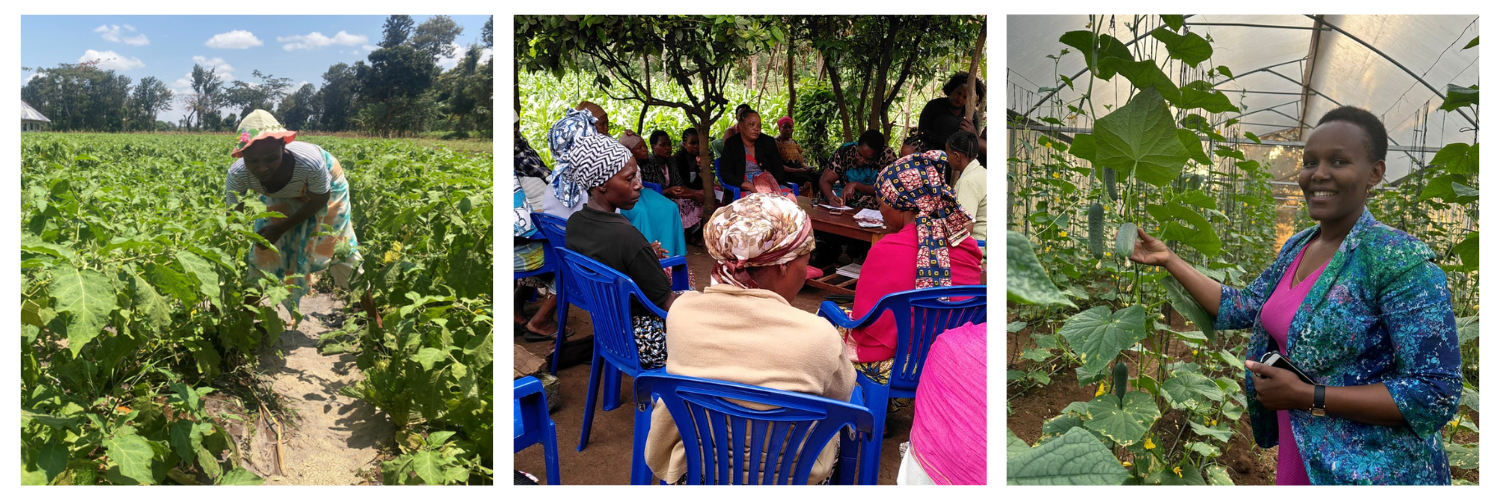In collaboration with the Tanzanian NGO Kilimanjaro Women’s Information and Education Community Organisation (KWIECO), Equality in Tourism International embarked on a pioneering women’s empowerment pilot project in 2018.
The aim was to forge a strong bond between the thriving Kilimanjaro tourism industry and the region’s subsistence farming sector. Through this ground-breaking initiative, women farmers and their families would be lifted out of poverty and trained to supply hotels and restaurants with locally produced, high-quality produce.
The project’s vision encompassed a holistic approach to address poverty, women’s rights, and climate change. By sharing the knowledge gained from the Empowering Women Farmers Through Tourism pilot project, more women farmers in Tanzania and across Africa could access market opportunities in the fruit and vegetable value chains.
Over the years, the project has transformed the lives of 120 impoverished and marginalised women from three villages. These women have received training in sustainable farming practices, entrepreneurship, understanding their rights, and managing their own micro-finance groups to help them with their savings. Many of these women have gone from competing against each other and struggling to support their families to being part of a cohesive co-operative, working together to produce quality produce and eliminate the previous practice of selling at low prices to middlemen. They have transformed their lives, using the resources of the co-operative to become respected members of their community that empower each other and bring about economic improvements in the community and their families.
Despite facing challenges like climate change-induced floods and droughts and the recent global pandemic, the women and their families have displayed remarkable resilience. For many of them, it is the first time they have achieved food security and now manage their own micro-businesses.

The women are members of the Wamboma Co-operative and have a shop in Moshi town. During the pandemic, they created Tanzania’s first farm boxes and have created a website, WhatsApp group, and Facebook page in order to market and sell their produce. They were also trained to dry fruit and vegetables as an additional future enterprise, supplying tour operators, visitors, and hotels with packets of dried pineapple, mango and banana for treks and safaris.
The project prioritised training hotels in the value of backward linkages to the community. Over 20 hotel managers received specialised training on this aspect, exploring the marketing opportunities it offered their businesses. A kite mark for an association of hotels linked to Wamboma and tours to the farmers to learn about their lives were anticipated, strengthening the connection between the hospitality sector and the local community. By sourcing locally produced, high-quality produce from the women farmers, hotels can play a vital role in supporting the community’s economic growth.
“This has been a great thing on my part, as my lovely guests are all very happy to see where their food comes from, and it’s perfect, high-quality vegetables.”
– Hotel Client for the Wamboma Co-operative
Through this partnership, hotels foster a sustainable and ethical supply chain, reducing their carbon footprint by decreasing their reliance on distant sources. This alignment with the co-operative allows them to invest in the community’s prosperity while positively impacting the environment.
With a focus on sustainability and women’s empowerment, the project was established as a replicable and self-sustaining business model. Its ambition lies in sharing the acquired knowledge widely to benefit other women. The project team has even been approached by local leaders and farming extension officers who would like to join and expand the project’s reach to include more villages and women.
Equality in Tourism, based in the UK, initiated and funded the project, providing expertise and knowledge from the tourism sector. KWIECO, as the local implementing partner, has played a crucial role in turning this vision into a reality.
As hotels in the hospitality industry seek ways to support local communities, the success of the Wamboma Co-operative stands as an exemplary model. Through empowering women and fostering linkages between tourism and farming, this innovative project has uplifted lives and brought about positive change. With the continued support of the tourism sector and a commitment to sharing knowledge, more women can be empowered, creating a brighter and more sustainable future for all.
For more information about the project and how you can get involved please contact: tricia@equalityintourism.org.

